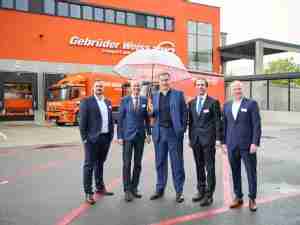CargoWise®, a global leader in technology solutions for logistics service providers (LSPs), announced a successful 12 month expansion in the Asian region, that has seen revenue growth of 17 percent, while the number of users has expanded by 16 percent, despite challenging economic conditions.
According to Mike Coney, Vice President of Business Development for CargoWise in Asia, many economies in the region are being negatively impacted by a softening in demand in Europe and the US, leading to a drop in exports. At the same time, the constant shift in production to low wage economies is forcing LSPs to remain agile and be prepared to source goods from a variety of locations.
“The culture of job preservation is very strong in Asia, so as demand drops and wages rise, productivity becomes a key element of success,” Coney says. “Many of our customers are very reticent to drop staff when demand falls or costs rise, so the adoption of ediEnterprise provides the benefits of freeing up operational staff to focus on customer service and sales, thereby increasing revenues and boosting output.”
In the past 12 months, CargoWise has brought on a number of new customers who are using ediEnterprise to attain significant strategic goals, including Singapore-based 20Cube Logistics, and Hong-Kong based Sui Jun International. Also of note are Transpole Logistics, which has significantly improved productivity by adopting ediEnterprise delivered through WiseCloud; Hong Kong-based S-Cargo, which has used ediEnterprise to ensure that its remote offices in mainland China operate from a single corporate database; and Indian-headquartered HTL Logistics, which is now operating ediEnterprise in 10 offices in six different countries.
CargoWise is also significantly expanding its presence in the region, forming a distribution partnership with Sri Lankan logistics technology specialists Asvinta.
Although the cost of adopting new software can be quite daunting for mid-size businesses, Coney says that CargoWise is winning new customers because many recognize that the cost of the software generally represents only a small proportion of salary costs, while it leads to a significant improvement in productivity. At the same time, successful LSPs in the region are looking for more effective ways not only to run their own businesses, but also are seeking more effective ways in which to operate with international partners and receiving agents in other countries.
“Our challenge has been to demonstrate the hidden costs that many of these businesses are facing by doing nothing, as well as pointing out the opportunities larger businesses have to deliver quality control across remote offices and the very real benefit of electronically linking with customers overseas,” Coney says. “Ultimately if the receiving agents are getting data electronically, they are less likely to search for new or ‘better’ agents.”









